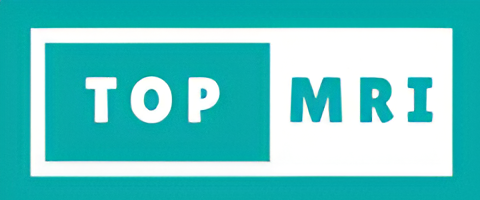
- Home
- Services
- Locations
- MRI Scan
- Greater London Area
- London – Marylebone, W1G 7HE – 3.0 T MRI Scan – £300
- London – Harley Street, W1U 2HX – Open MRI Scan – £500
- Middlesex – Enfield, EN2 8JL – 1.5 T MRI Scan – £300
- West Middlesex – Isleworth, TW7 6AF – 1.5 T MRI Scan – £300
- Surrey – Epsom, KT18 7LX – 1.5 T MRI Scan – £300
- Surrey – Ashford, TW13 3AA – 1.5 T MRI Scan – £300
- Surrey – Guildford, GU2 7XU – 3.0 T MRI Scan – £300
- Kent – Sidcup, Bexley, DA14 6LT – 1.5 T MRI Scan – £300
- North West England
- Manchester – M80 4AN – Open MRI Scan – £500
- Greater Manchester – Manchester, SK8 7NB – 1.5 T MRI Scan – £279
- Greater Manchester – Whythenshaw, M23 9LT – 3.0 T MRI Scan – £300
- Greater Manchester – Stockport, SK2 7JE – 1.5 T MRI Scan – £300
- Cumbria – Cockermouth, CA13 9HT – 1.5 T MRI Scan – £279
- Cumbria – Penrith, CA11 0AH – 1.5 T MRI Scan – £279
- Lancashire – Preston, PR4 0AP – 1.5 T MRI Scan – £279
- Lancashire – Fylde, FY8 1PF – 1.5 T MRI – £300
- North East England
- East Midlands
- East of England
- West Midlands
- South West England
- South East England
- Wales
- Yorkshire and the Humber
- Greater London Area
- CT Scan
- Full Body MRI Scan
- Ultrasound
- MRI Scan
- Patients
- Referrers
- Prices
- 0333 344 1811
[email protected]
Anaplastic Thyroid Cancer
- Uncategorized
-
Sep 15
- Share post
Anaplastic Thyroid Cancer: Symptoms, Causes, Diagnosis, Treatment, and Future Outlook.
Disclaimer:
This blog is for informational purposes only and should not be taken as medical advice. Content is sourced from third parties, and we do not guarantee accuracy or accept any liability for its use. Always consult a qualified healthcare professional for medical guidance.
What is Anaplastic Thyroid Cancer?
Anaplastic Thyroid Cancer (ATC) is a rare, highly aggressive undifferentiated thyroid cancer, comprising 1-2% of thyroid malignancies. It affects older adults (median age 70) and grows rapidly, often arising from pre-existing differentiated thyroid cancer or goiter. In 2025, multimodal therapies improve survival, though prognosis remains poor.
Symptoms
Symptoms include rapidly growing neck mass, hoarseness, difficulty swallowing or breathing, persistent cough, neck pain, and voice changes. Advanced cases cause weight loss, fatigue, or stridor (airway obstruction). Symptoms mimic infections or benign thyroid nodules, delaying diagnosis until stage IV in most cases.
Causes
Risk factors include prior thyroid disease (goiter, papillary/follicular cancer), radiation exposure, and genetic mutations (BRAF, TP53, TERT promoter). ATC often results from dedifferentiation of existing thyroid cancers. In 2025, genomic studies show how tumor microenvironment and immune suppression accelerate progression.
Diagnosis
Diagnosis uses fine-needle aspiration or core biopsy, with immunohistochemistry to confirm undifferentiated cells. Imaging (CT, PET, ultrasound) assesses tumor extent and metastases (lungs, bones). Molecular testing for BRAF and other mutations guides therapy. In 2025, AI-assisted pathology and BRAF testing are standard for rapid diagnosis.
Treatment
Treatment is multimodal: surgery (total thyroidectomy) if resectable, external beam radiation, and chemotherapy (doxorubicin, paclitaxel). BRAF-mutated ATC (40% of cases) responds to BRAF/MEK inhibitors (dabrafenib/trametinib), with 69% response rates. Immunotherapy (pembrolizumab) is used for advanced cases. In 2025, neoadjuvant chemo-radiation improves resectability, extending survival.
Future Outlook
Median survival is 5-6 months, but resectable cases reach 20% 2-year survival. In 2025, targeted therapies extend median survival to 12 months in BRAF-mutated cases. Research into immunotherapy combinations, redifferentiation therapies, and gene editing aims for 24-month median survival by 2030, with emphasis on early detection.
Sources
The information for ATC is derived from NCI’s “Thyroid Cancer Treatment (PDQ®)” for treatment and prognosis details; Mayo Clinic’s “Anaplastic Thyroid Cancer” for symptoms and causes; PMC’s “Genomics of Anaplastic Thyroid Cancer” for genetic drivers and mechanisms; JAMA Oncology’s “Advances in ATC Therapy” for 2025 treatment updates; and Medscape’s “Anaplastic Thyroid Cancer” for etiology and diagnostic approaches.